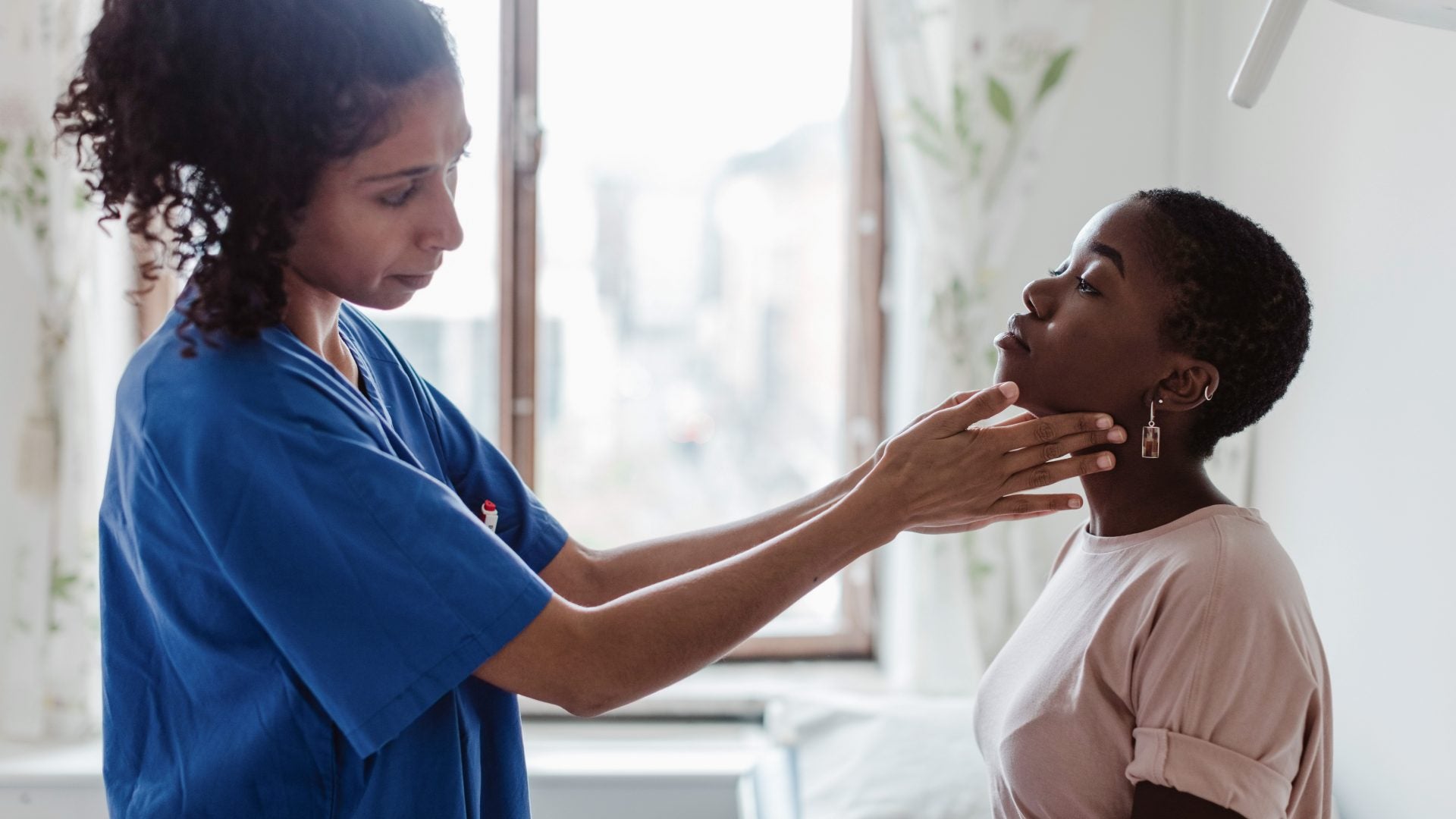
There is a sense of mistrust of medical professionals in the Black community, leaving many to feel like seeing a doctor isn’t an option for them. One in five Black adults say they were treated unfairly because of their race in the past year when getting health care for themselves or a family member.
To help address this critical issue of systemic racism in healthcare, Johnson & Johnson is taking steps to increase the pipeline of diverse health professionals. By partnering with national and community-based organizations that share their commitment to health equity, Johnson & Johnson is nurturing a more diverse and culturally competent healthcare system, including building Black leadership in the field of nursing, mentoring and supporting Black STEM students, investing in health-based entrepreneurship, and broadening access to care. But what does that mean for you? By moving toward real systemic change, you can feel good about getting the medical care you need for you and your family, while seeing positive changes in your local community.
Building Black Leadership
It’s time to give nurses what they need to really succeed. So, Johnson & Johnson is working with the National Black Nurses Associations, to create a new online Nursing Leaders Program. Offered for the first time at the University of Pennsylvania, the program will give nursing leaders tools to be successful as frontline voices for their patients and as decision-makers who affect systemic change and improve health outcomes for whole communities. They are taking it a step further by joining six historically Black colleges and universities to introduce new leadership and resilience training programs in collaboration with the National League for Nursing—getting the next generation of nurses ready to work in the field.
Supporting Black STEM Students
Inspiring young Black women to step into STEM fields Johnson & Johnson is preparing the next generation of diverse and culturally-attuned health workers. Scholarships and mentoring opportunities have been created for medical students of color through the National Medical Fellowships. Plus, they are working to rectify inequities and removing barriers for Black and Latinx girls in underserved communities. With Johnson & Johnson employees serving as mentors, they’re helping revolutionize the next generation of STEM2D professionals by accelerating change that builds positive STEM identities. To bring this program to life, Johnson & Johnson is partnering with the National Society for Black Engineers and with Girls Inc. The mission of the NSBE is to increase the number of Black Engineers who excel academically, succeed professionally and positively impact the community. And Girls Inc. serves girls ages 6-18 at more than 1,500 sites in 350 cities across the United States and Canada. Their evidence-based programming is delivered by trained professionals who focus on the development of the whole girl, supporting, mentoring, and guiding girls in an affirming, pro-girl environment.
Investing in Entrepreneurship
Health-focused entrepreneurs have the power to reimagine solutions to our greatest health needs and close the racial health gap. To support these innovators and help them scale their ideas, Johnson & Johnson is working with Village Capital (VC) on a new program called Building A Culturally Competent Healthcare System Accelerator, and together have created a series of QuickFire Challenges for Diverse Innovators. When only 1% of all VC funding goes to Black entrepreneurs, this is a great opportunity for Black innovators to secure funds for their ideas. These challenges are aimed at helping to identify, support, and accelerate the most promising ideas in healthcare. From Nurses to Neuroscience and Skincare to Smart Healthcare, there are a variety of challenges around the world that you can choose from that all carry grant funding up to $150,000.
Broadening Access to Care
Often times health disparities can be linked with social determinants, like where we live, work, learn, and play. From congested inner cities to rural areas and food deserts, health providers are often separated from those who need them most. Understanding that these social determinants create inadequate access which leads to a distrust of the healthcare system and lack of care, Johnson & Johnson has rolled out programs in states across the nation—from schools to churches and even roving healthcare vans—to help get health services to underserved communities. They are also working to transform maternal healthcare. According to the March of Dimes 2020 Maternity Care Report, about 50% of counties in the US are obstetric deserts with more than 1,200 counties having neither an OBGYN nor a Certified Nurse Midwife. Johnson & Johnson has identified ways to reach one of these obstetric deserts in Georgia, by unifying the efforts of academic institutions, researchers, community organizations, and maternal health leaders to create safer environments for new moms and their babies.
Johnson & Johnson is stepping forward and stepping up to meet the critical issue of systemic racism in healthcare by working toward a more diverse and culturally competent healthcare system. They have also set new goals like establishing a diverse and inclusive culture, addressing social, environmental, and economic determinants related to health inequities, and working toward healthier communities. All these efforts are aimed at breaking the cycle of systemic racism and working toward vibrant, thriving communities, because “the quality of your healthcare should not be determined by your race and ethnicity,” says Alex Gorsky, Chairman and Chief Executive Officer of Johnson & Johnson.
Click here to explore more Johnson & Johnson Empowerment to Health Equity content and resources including articles on health equity and so much more.





